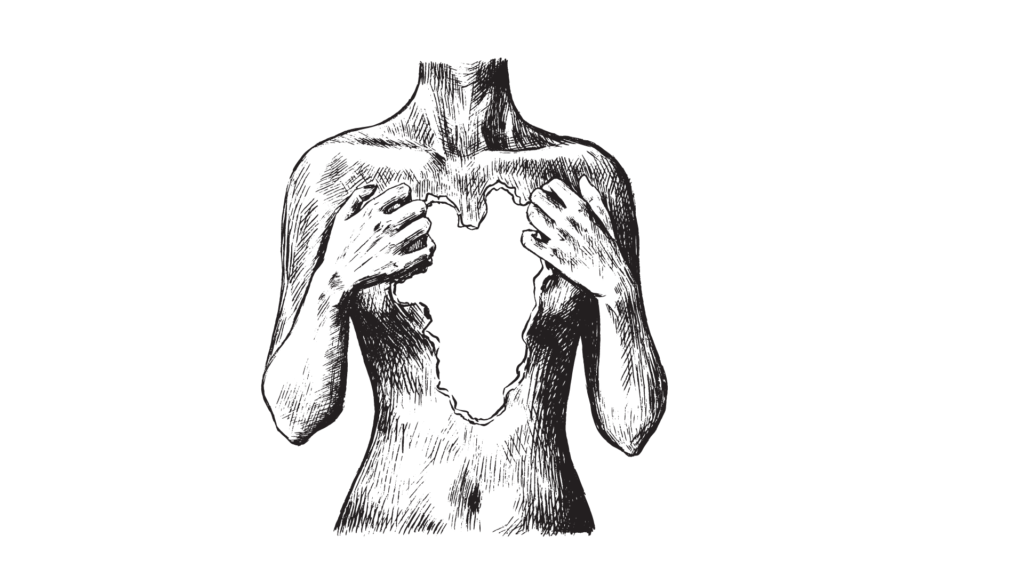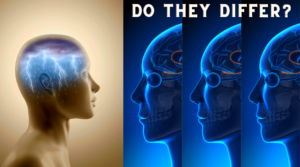The brain is the theoretical imperative for understanding the world by looking at “What is”. When asked “What do you think?” before anyone has said anything, the brain responds with an answer: “I think I’m hungry” or, “I think my foot hurts.”
It doesn’t just talk about itself; it also processes outside data – information from our senses. It tells us how we feel about that data.
Soul: Is it more real than neurons and synapses?

The idea of a soul (or spirit) has been around for millennia. Only recently have we begun to understand how to use modern technology to explore its very nature.
With fMRI scanners and other brain-imaging tools, we can now peek into someone’s mind and see how their thoughts unfold.
For example, a church might be the most sacred space for some people, and an airport for others: when people stand inside these places and close their eyes, they can experience powerful feelings of awe or dread.
And when asked to describe what they are experiencing, many people describe a feeling of “something.”
What is that “something”? Where does it come from? Is it real? And if it’s a feeling, how do we study feelings scientifically? Is the soul more real than neurons and synapses, or is it something else entirely?
Many people believe that the soul is a physical entity. In other words, they believe in the afterlife, where they will have an essential identity separate from their physical body.
This belief has many benefits. It also provides a framework for understanding life’s meaning and purpose. For example, one could ask: “Why am I here? What purpose does my life serve?” or even “Why do bad things happen to good people?”
People who don’t believe in the soul often talk about how hard it is to get their hands around the concept. But this is just a different way of talking about the fact that our hands are always in our body, and so it’s hard to get them around something that isn’t.
Yet this problem doesn’t mean that the soul isn’t real. It just means we haven’t designed a good way to study it. We should keep trying to find new ways of explaining what it’s made out of and how it works, even if we don’t have many facts yet.
For example, Nobel Prize winner Francis Crick famously stated, “You’re nothing but a pack of neurons.” If Crick was right, he’d have conquered the mind-body problem by reducing all mental activity to neural activity. But that’s not quite the story.
The problem with “nothing but neurons” is that it suggests there’s nothing behind brain activity. In other words, it suggests that neurons are the end goal of all mental activity, like a blank sheet of paper on which everyone writes their thoughts.
If we want to explain what goes on inside a person’s head, this is wrong.
Crick was not saying that the brain is just composed of neurons; he was just observing how nerve cells work together to process information.
In other words, Crick was hinting that there’s more going on than just neurons and synapses firing in the mind-body system. He was saying that the mind and the body are connected in important ways.
If that sounds familiar, it’s because Crick was describing a phenomenon called emergentism: the idea that a system can have properties not found in any of its parts.
For example, water is made up of hydrogen and oxygen atoms, but if you put them together randomly you won’t get water (you’ll get dirt).
Yet, when you take those two atoms and connect them – when they interact with each other – they form something new that has properties not found in any individual atom.
In this case, it’s liquid water instead of something solid or gaseous. Similarly, if you take the atoms and connect them to form a planet, they will interact with each other and a new system emerges. This is how planets are formed.
In other words, emergent systems always have properties that cannot be explained by simply looking at their individual parts. This is why Crick’s statement about neurons being “nothing but” neurons is wrong.
Our brains are not just neurons; we need something else – a brain-mind connection – to function in the first place.

This means that biological activity can still be studied without reducing it to the activity of individual parts (neurons). So, when we look at how the brain functions, we see two things: neurons and synapses interacting together to form specialized circuits; and something else that lets those circuits – and thus our thoughts – function properly.
So, when people say “I think I’m hungry,” the “I” talking is not a biological part; it’s the emergent system of neurons communicating with each other in a way that makes us feel like we are who we are.
It’s what Crick called the “seat of consciousness.” The soul, or spirit, is the thing in us that makes us feel from within. This isn’t something that philosophers made up wanting to design an afterlife. Rather, it has come to light through scientific investigation.
The danger of not believing in the soul is that when we die, it could be like falling asleep and never waking up. When we lose consciousness, there’s nothing else left to feel. What’s the point of living if there’s no sense of self?
The good news is that most people who don’t believe in souls don’t want to live forever. In fact, most people who worry about death have actually worries about facing their own mortality – which shouldn’t confuse with the soul.
But perhaps biological immortality isn’t really what we need. Instead, maybe we just want a sense of perpetual life: a continuing identity in which our memories carry on from existence to existence without ever fading away.
Even if we can’t be immortal, our brains might be able to enact a sense of immortality by integrating with technology so that our thoughts and dreams can live on. In this way, the soul and immortality are two sides of the same coin.
The soul is not just a physical entity; it’s an emergent property of the mind-body system. Without the brain, there’s no mind or soul.
And so our minds are tied to our brains in a very important way. That doesn’t make us spiritual robots; it does not work like that. It makes us biological beings with a consciousness that is capable of experiencing joy and suffering.
To Conclude,
So, to me, the question isn’t “Is the soul real?” It’s 1. “How can we better understand what makes us who we are?” 2. “How can we better explain human experience?”
The answers to these questions may require some radical new ideas; the ideas that go beyond what some traditionalists want science to be – but that’s fine.
- AI-Powered PCs: Overhyped Trend or Emerging Reality? - August 21, 2024
- Princeton’s AI revolutionizes fusion reactor performance - August 7, 2024
- Large language models could revolutionize finance sector within two years - March 27, 2024


